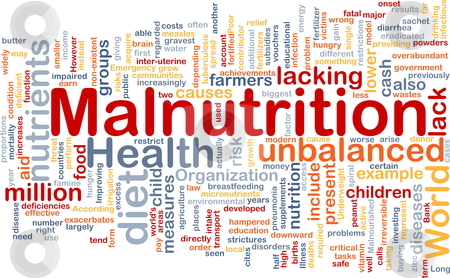- Home
- Medical news & Guidelines
- Anesthesiology
- Cardiology and CTVS
- Critical Care
- Dentistry
- Dermatology
- Diabetes and Endocrinology
- ENT
- Gastroenterology
- Medicine
- Nephrology
- Neurology
- Obstretics-Gynaecology
- Oncology
- Ophthalmology
- Orthopaedics
- Pediatrics-Neonatology
- Psychiatry
- Pulmonology
- Radiology
- Surgery
- Urology
- Laboratory Medicine
- Diet
- Nursing
- Paramedical
- Physiotherapy
- Health news
- Fact Check
- Bone Health Fact Check
- Brain Health Fact Check
- Cancer Related Fact Check
- Child Care Fact Check
- Dental and oral health fact check
- Diabetes and metabolic health fact check
- Diet and Nutrition Fact Check
- Eye and ENT Care Fact Check
- Fitness fact check
- Gut health fact check
- Heart health fact check
- Kidney health fact check
- Medical education fact check
- Men's health fact check
- Respiratory fact check
- Skin and hair care fact check
- Vaccine and Immunization fact check
- Women's health fact check
- AYUSH
- State News
- Andaman and Nicobar Islands
- Andhra Pradesh
- Arunachal Pradesh
- Assam
- Bihar
- Chandigarh
- Chattisgarh
- Dadra and Nagar Haveli
- Daman and Diu
- Delhi
- Goa
- Gujarat
- Haryana
- Himachal Pradesh
- Jammu & Kashmir
- Jharkhand
- Karnataka
- Kerala
- Ladakh
- Lakshadweep
- Madhya Pradesh
- Maharashtra
- Manipur
- Meghalaya
- Mizoram
- Nagaland
- Odisha
- Puducherry
- Punjab
- Rajasthan
- Sikkim
- Tamil Nadu
- Telangana
- Tripura
- Uttar Pradesh
- Uttrakhand
- West Bengal
- Medical Education
- Industry
Prioritize the elimination of the triple burden of malnutrition; under-nutrition, over-nutrition and micronutrients deficiencies

New Delhi: The Vice President of India, Shri M. Venkaiah Naidu called upon scientists, policy makers and planners to adopt new strategies to tackle the problem of malnutrition, which in its various forms is a looming threat to our development.
Addressing the valedictory session of the International Conference on Endocrine Disrupting Chemicals (ECDs), organized to mark the completion of centenary celebrations of National Institute of Nutrition (NIN), in Hyderabad today, the Vice President referred to the difficulty in bringing about a change in age-old dietary habits of the people and suggested the involvement of local community at the grassroots to effectively convey the message for consumption of nutritious food.
Calling upon the nutrition scientists to accord the highest priority to eliminating the triple burden of malnutrition comprising under-nutrition, over-nutrition and micronutrients deficiencies (hidden hunger), the Vice President wanted NIN to align its research with the National Nutrition Mission, which seeks to improve the nutritional indicators of children, pregnant women and lactating women.
Asking NIN to look at newer vistas to make India a healthy nation, he recalled renowned scientist Prof. M.S. Swaminathan’s suggestion that India needs to shift its focus from food security to nutrition security and eradicate three kinds of hunger - protein hunger (caused by protein deficiency), calorie hunger (caused by calories deficiency) and hidden hunger (caused by deficiency of micronutrients).
The Vice President urged the scientists and practitioners working in the fields of health, agriculture and nutrition to interact with each other regularly and exchange information and knowledge. He said that a holistic strategy and concerted effort was required to tackle the menace of malnutrition.
Pointing out that India was also facing the phenomenon of nutrition transition (shifts in dietary patterns due to economic development, modernization and urbanization), he said “it is indeed paradoxical that we are facing lifestyle disorders, including obesity, on the one hand, and malnutrition on the other’.
The Vice President observed that promoting a healthy and active lifestyle is as crucial as a balanced and nutritious diet. Referring to the rise in non-communicable diseases like diabetes, hypertension and cardiovascular diseases, Shri Naidu said the figures mentioned in NIN’s Urban report indicate a worrisome trend and called for reversing it.
Extolling the health benefits of our traditional food items which were suited to the local climate and environment of India, the Vice President said that our changing food habits with disproportionate instant and junk food components and our sedentary lifestyle for the rising incidence of lifestyle diseases. He suggested that we should move towards a more active lifestyle involving physical exercise including the practice of Yoga and pay adequate attention to include more nutritional food in the diet.
The Vice President said that the report mentioned over 33 per cent of men and 44 per cent of women in urban areas (16 States) were overweight or obese. Similarly, about 20 per cent of the urban population was suffering from diabetes mellitus and more than 25 per cent was hypertensive, he added.
Shri Naidu said that even though India has by and large achieved food security, we do not have the luxury to be complacent. We have to keep fine-tuning and refining our agricultural practices to make them sustainable, he added.
The Vice President urged the scientists to work towards achieving Sustainable Development Goals, which aim to end all forms of hunger and malnutrition by 2030. He also urged scientists to create awareness among the people on the health hazards due to extensive use of pesticides in agriculture.
The Secretary, Department of Health Research, Ministry of Health & Family Welfare, Govt. of India, Prof. (Dr.) Balram Bhargava, the Organizing Secretary & Coordinator, Dr J. Padmaja, the Director, NIN, Hyderabad, Dr Hemalatha and other dignitaries were present on the occasion.
Medical Dialogues Bureau consists of a team of passionate medical/scientific writers, led by doctors and healthcare researchers. Our team efforts to bring you updated and timely news about the important happenings of the medical and healthcare sector. Our editorial team can be reached at editorial@medicaldialogues.in.


